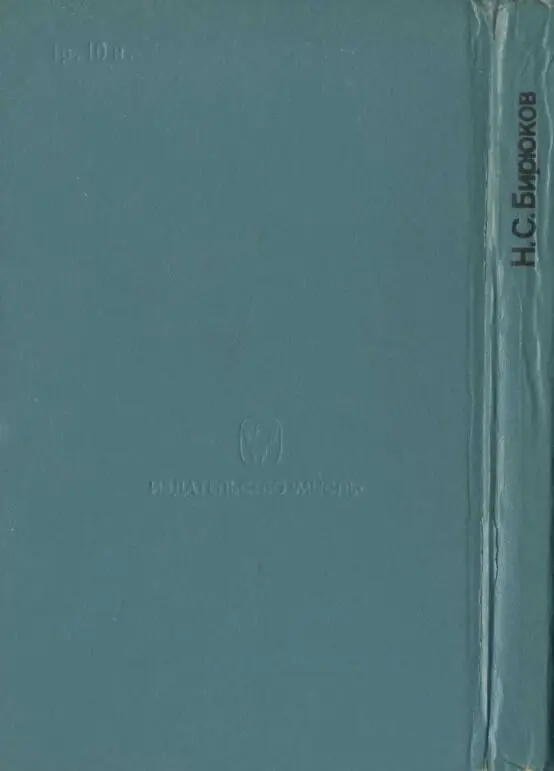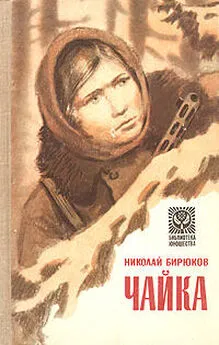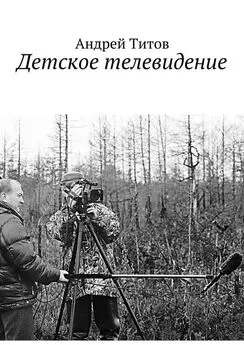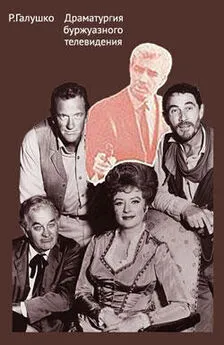Николай Бирюков - Буржуазное телевидение и его доктрины
- Название:Буржуазное телевидение и его доктрины
- Автор:
- Жанр:
- Издательство:Мысль
- Год:1977
- Город:Москва
- ISBN:нет данных
- Рейтинг:
- Избранное:Добавить в избранное
-
Отзывы:
-
Ваша оценка:
Николай Бирюков - Буржуазное телевидение и его доктрины краткое содержание
Буржуазное телевидение и его доктрины - читать онлайн бесплатно полную версию (весь текст целиком)
Интервал:
Закладка:
Brown L. Television. The Business behind the Box. New York, 1971.
Cazneuve J. Les pouvoirs de la television. Paris, Gallimard, 1970.
Champagne P. La television et son langage: l’influence.des conditions sociales de reception sur le message. — «Revue frangaise de sociologies vol. XII, N 3, 1971.
Chester E. Radio, Television and American Politics. New York, Sheed and Ward, 1969.
Clausse R. Les nouvelles, synthese critique. Ed. deTInst. de sociologie de l’Univercite libre de Bruxelles. Bruxelles, 1963.
Communication Satellites for Education, Science and Culture, N 53. UNESCO, Paris, 1967.
Communication Theory and Research. Ed. L. Thayer, Springfield, 1967.
Dickinson /. Eurovision in 1969.— In: «Word Radio — TV Handbook». Ed. J. Frost, Denmark, 1970.
Dizard W. American Television’s Foreign Markets. — «Television Quarterly», 1964, N 3.
Doan R. Can Television Elect the Next US President? — «TV Guide», 10.IL1968.
Doan R. Global Television — when? — «TV Guide», 27.1.1968.
The Effects of Television. Ed. J. Halloran. Panther Modern Society. London, 1970.
Emery W. National and International Systems of Broadcasting. Michigan State University Press, 1969.
Emmett B. A Brief History of Broadcasting Research in the United Kingdom. — In: International Studies of Broadcasting. Tokyo, NHK, 1971.
Fagen R. Politics and Communication. Boston — Toronto, Little Brown. 1966.
Feshbach S . and Singer R. Television and Aggression: an Experimental Field Study. San-Francisco, Jessey-Bass, 1970.
Feshbach S. The Drive Reducing Function of Fantasy Behaviour. — «Journal of Abnormal and Social Psychology», 1955.
Feschbach S. The Stimulating Versus Cathartic Effects of a Vicarious Aggressive Activity. — «Journal of Abnormal and Social Psychology», 1961, vol. 63.
Fincelstein S. Sense and Nonsense of McLuhan. New York, International Publishers, 1967.
De Fleur M.-D. Mass Communication and Social Change. — In: «Media Sociology». Ed. J. Tunstall. London, Constable, 1970.
Folliet /. L’information moderne et le droit a l’information. Lyon — Paris, Chronique sociale de France, 1969.
Franc R . Anathomy of Television News. — «Television Quarterly», 1970, N 1. 272
Japan NAB Handbook, Tokyo, Bungei Shunju Building.
Jennings R. Dramatic License in Political Broadcasting. — «Journal of Broadcasting», 1968, N 3.
Johnson N. How to talk back to your Television Set. Atlantic, Little Brown, 1970.
P. Jordan. Presse und Offentlichkeit. Frankfurt a. M., Diesterweg, 1970.
Kelley S. and Smith H. The Great Debates. — «Television Quarterly»,1966, N 1.
Kendrick A. Prime Time: the Life of Edward R. Murrow. Boston, Little Brown, 1969.
Klapper J. The Effects of Mass Communication. Glencoe (111.), Free Press, 1961.
Knilly F. Die Unterhaltung der deutschen Fernsehfamilie. K.-H.-Fer- lag. Miinchen, 1972.
Koop T. Television: American Star Reporter. — «Television Quarterly», N 38.
Lang K. and Lang G. Politics and Television. Chicago. Guardrangle Books, 1968.
Lange D. Mass Media and Violence. A Report to the National Commission on the Causes and Prevention of Violence. Washington. Gov. print., 1969.
Lasswell H. The Structure and Function of Communication in Society. — In: «The Communication of Idea». New York, Ed. L. Bryson, Harper and brothers, 1948.
The History of Broadcasting in Japan. History Compilation Room Radio — TV Culture Research Institute. Tokyo, NHK, 1967.
Holzer H . Massenkommunikation und Demokratie in der Bundesrepub- lik Deutschland. Opladen, Leske, 1969.
How do People spend their Time in Japan. Tokyo, NHK Public Opinion Recearch Institute, 1971.
Independent Television Autority. Annual Report and Accounts. London.
L’information к travers le monde: presse, radio, television, films. Paris, UNESCO, 4-e ed., 1966.
ITV. A Guide to Independent Television. London.
Himmelweit H. tOppenheim A. and Vinve P. Television and the Child. Oxford Univ. Press, 1958.
Green T. The Universal Eye. New York, Stein and Day, 1972.
Guback T. Political Broadcasting and Public Policy. — «Journal of Broadcasting», 1968, N 3.
Guide to Key British Enterprises. Dun and Bradstreet Ltd. London.
Halloran J. The Effects of the Media Portroyal of Violence and Aggression. — In: «Media Sociology». Ed. J. Funstal. London, Constable, 1970.
Halloran Brown R . and Chaney D. Television and Delinquency. Leichester Univ. Press, 1970.
Harwood K. Public Broadcasting and Private Profit. — «Journal of Broadcasting», 1967, N 3.
Hayakawa S. TV and the Negro Revolt. — «Television Quarterly», 1964, N 3.
Japan Broadcasting Corporation. NHK through Charts and Diagrams, Tokyo.
Henry W. The Fairness Doctrine. — «Television Quarterly», 1964, N 3–4. 273
Lazarfetd P. Frends in Broadcasting Research in the United States. — In: «International Studies of Broadcasting». Tokyo,
Melon-Martinez E. La television dans la famille et la societe moder- nes. Paris, Ed. sociales frangaises, 1969.
Mendelson H. and Grespi /. Rolls, Television and the new Politics. Seranton, 1970.
Menninger K. Television — The Comforting Presence. — «TV Guide», 1968, 18–24. V. 1968.
Merlin L. Le vrai dossier de la television. Paris, Hachette, 1965.
Meyerhoff A . The Strategy of Persuasion. New York, 1965.
Meyersohn R. Social Research in Television. — In: «Mass Culture». Ed Rosenberg D. and White D. New York, Free Press, 1965.
MOODY’s Investor Service, inc. Industrial Manual.
Moreau J.-G. Le regne de la television. Ed. du Seuil. Paris, 1967.
Michelat G. Television, moyens d’information et comportement electoral. Paris, 1966.
Murrow E. Television and Politics. Dons or Crooners? Granada Television Ltd. Manchester, 1959.
NHK Handbook. Tokyo.
NHK to-day and to-morrow. Tokyo.
ORTF. Paris. Presses Pocket.
Picard C. Qu’est-ce l’information? — In: «L’ere des Ordinateurs, Recherches et Debats». Paris, Desclee de Brouwer, 1967.
Public Affairs Handbook. Washington, Gov. Print. Off.
Quelques dates de TSF, de Radiodiffusion Sonore et de la Television en France. ORTF, 1967.
Reinsch L. Broadcasting the Political Conventions. — «Journal of Broadcasting», 1968, N 3.
McLuhan M. Culture is our Business. New York, McGraw — Hill, 1970.
McLuhan M. Understanding Media. New York, Signet, 1964.
McLuhan M. and Watson W. From Clishe to Archetype. New York. The Viking Press, 1970.
McLean R. Television in Education. London, Methuen, 1969.
Loevinger L. The Lexonomics of Telecommunication. — «Journal of Broadcasting», 1967, N 4.
Loomis G. That long, lively Pursuit of ABC. — «Fortune», 1969, III.
Lorenz L. Truman and the Broadcasting. — «Journal of Broadcasting», 1969, N 1.
McNeil R. The People Machin. London, Spottings Wood, 1970.
Mass Media in Society. The Need of Research. Paris, UNESCO, 1970, N 59.
Lerner M. Beware of TV’s Election Monster. — In: «Sight, Sound and Society». New York, 1968.
McLuhan M. The Medium is the Message. New York, Bentham books, 1967.
Lerner M. Television: the Fouth Branch of Government. — «TV
Quide», 1970, 28.XI.1970.
Lower E. Fairness, Balance and Time. — «Television Quarterly», 1970, N 4.
McGinniss /. The Selling of the President. New York, Free Press, 1969.
Loevinger L. The Limits of Technology. — «Television Quarterly», 1967, N 1. 274
Schramm W. Television in the Lives of our Children. Stafford, 1971.
Servan-Schreiber J.-L. Le pouvoir d’informer. Ed. R. Baffont. Paris, 1972.
Shulman A., Youman R. The Television Years. New York, Popular Library, 1973.
Siebert F., Peterson T., Schramm W. Four Theories of the Press. The Univ. of Illinois Press: Urbana, 1963.
Sight, Sound, Society. Motion Pictures TV in America. Ed. D. White. Averson. Boston, Beacon Press, 1968.
Singer B. Violence Protest and War in Television News: the U. S. and Canada compared. — «Public Opinion Quarterly», 1970, N 4.
Skornia H. Television and the News. New York, McGraw Hill, 1968.
Skornia H. Television and Society. An Inquest and Agenda for Improvement. New York, McGraw Hill, 1965.
Small W. To kill a Messenger: Television News and Real World. New York, Hasting House, 1970.
Sociale Education through Television, N 38. UNESCO. Paris, 1970.
Statistiques de la radiodiffusion et de la television (1950–1960). UNESCO. Paris.
Stenberg В . et Sullerot E. Aspects sociaux de la radio et de la television. Paris — La Haye, Mouton et C°, 1966.
Studies of Broadcasting. Tokyo, Radio and TV Culture Research Institute, NHK, 1972.
Summers R. and Summers H. Broadcasting and the Public. Belmont (Cal.). Wadsworth, 1966.
Tamura M. Leisure of the Japanies. — «Studies of Broadcasting». Tokyo, 1972, N 8.
Television Factbook. Television Digest. Washington.
Riesman D . La foule solitaire (trad, franсaise). Paris, Arthaud, 1964.
Schiller H. The Mind Managers. Boston, Beacon Press, 1973.
Schlesinger A. How Practically has Television Change our Politics. — In: «Sight, Sound and Society». Boston, Beakon Press, 1968.
Schramm W. Mass Media as the Sources of Public Knowledge. — «Public Opinion Quarterly», 1969, N 2.
Schramm W. The Chellenge to Communication Research. — In: «Introduction to Mass Communication Research». Ed. by R. Naf- ziger and D. White. Baton Rouge, Louisiane State Univ. Press, 1968.
Sandman P. tRubin D. tSachsman D. Media. An Introductory Analysis of American Mass Communications. Prentice — Hall me. New York, 1972.
Warner M. Decision-making in American TV Political News. —
«TV Guide», Oct. — Nov. 1969. See series of articles on TV and children.
Violence and the Media: a Staff Report to the National Comission on the Couses and Prevention of Violence. Washington, Govern. Print. Office, 8-c, 1969.
Voyenne B. La presse dans la societe contemporaine. Paris, Armand Colin, 1962.
Riegel О . Communications and Nations. — In: «Studies of Broadcasting». Tokyo, NHK, 1972. 275
In: «Sociology of Mass Media Communicators». Ed. by P. Halmos. Keele Univ. Press, 1965.
Weinberg M. TV in America. The Morality of Hard Cash. New York, Ballantine Books, 1962.
Wilson D. The Communicators and Society. Oxford, Pergamon Press, 1968.
Winick Ch. and Winick M. A Procedure for Content Analysis of TV Cartoons. — «Journal of Broadcasting», 1969, N 1.
World Radio — TV Handbook. Denmark, ed. J. Frost.
Zweites Deutsches Fernsehen. Jarbuch, Mainz.

Примечания
Интервал:
Закладка:









